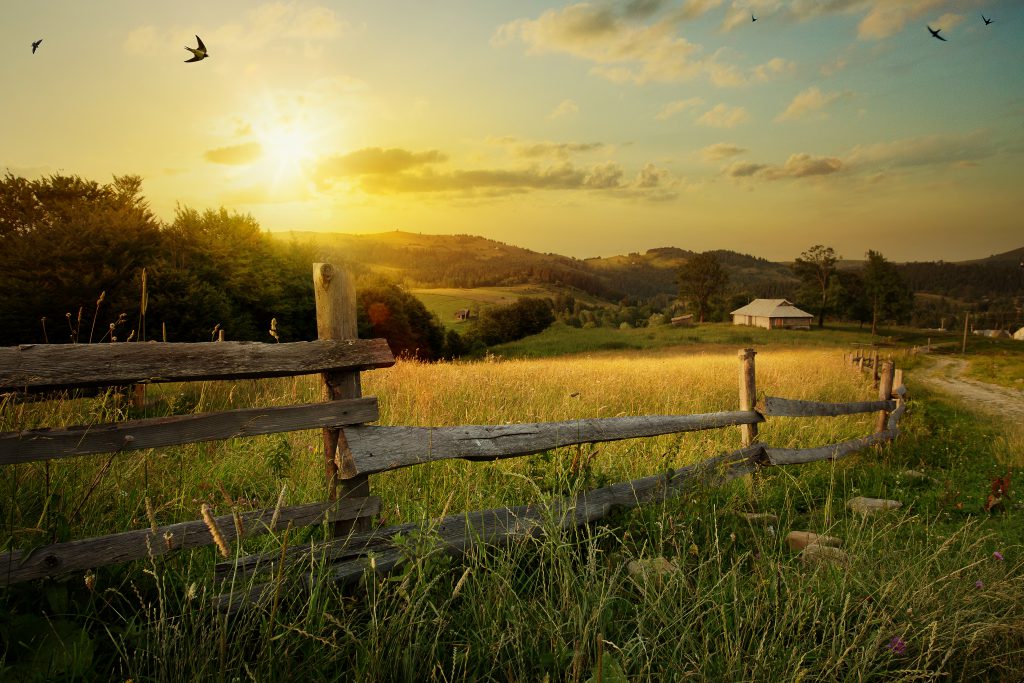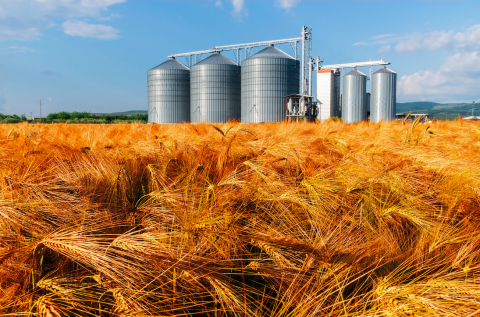Food Basket
An Equitable Future
South Africa has many challenges to overcome, not least of which is the equitable distribution of resources like land. The use of arable land in the country is a contentious issue at best, and is compounded by the need to address the historical injustices of the past in a sustainable way.
While many positive steps have been taken in improving the lives of South Africans since 1994, there is still a long way to go when it comes to land ownership, tenure rights and the rebuilding of rural communities.
One such community is Naledi Village in the Eastern Free State, where residents have started to see their self-worth, independence and pride being rebuilt brick by proverbial brick, through a permaculture project initiated by the Earthrise Trust.
Brick by brick
Earthrise Trust, founded by political and social activists Jay Naidoo, Kumi Naidoo and Gino Govender, is a not-for-profit social justice initiative that seeks to marry environmental protectionism with rectifying the injustices of the past.
In 2013, the trust purchased 273 hectares of land, known as Rustlers Valley farm, of which 130 hectares is arable and a further 143 hectares is suitable for grazing. The property had been ravaged by a devastating fire in 2007 and after the death of the primary shareholder in 2008 it was left to fall into ruin and disrepair.
In the four years since the trust bought the land, Rustlers Valley farm has become a beacon of hope in the area as a community-led social initiative. It quickly attracted a lot of attention and garnered widespread support from government and private organisations that see its potential to restore dignity and hope to the Naledi Village residents.
Earthrise Trust had four aims for Rustlers Valley: to reconstruct the built environment ravaged by the fire in 2007; to build a co-operative smallholder eco-farming programme, and build a partnership for rural development with Naledi Village; and to establish a retreat and hub for development and innovation.
The intention was to put together an integrated participatory partnership approach to building a sustainable rural community, with a commitment to transfer a portion of the land to the Naledi Village Trust.
With 42 hectares registered as a residential settlement, the villagers could now plan to build more permanent housing for the first time in generations, and with 28 hectares signed over to the Naledi Village Farmers’ Co-operative to use for farming, the work could finally begin.
From housing to farming
In 2015, the Naledi Village co-op became the first agricultural project that Old Mutual has invested in, securing a R1.5-million grant, as well as investment from the Industrial Development Corporation (IDC). This was a result of investment from the private sector, which includes current negotiations with Tsebo Group to sponsor farming tunnels and equipment in exchange for high-quality produce.
This agreement essentially creates a guaranteed direct market for the sale of crops grown in the rural community. The initiative has also gained the respect of other agricultural co-operatives that see the Naledi Village co-op as part of their community, with a place in the ecosystem to create a sustainable solution to land tenure rights, alongside multinational farming organisations.
The Earthrise trustees have been consistent in their mandate to put control of all aspects of the farm in the hands of the community members. The Naledi Village Farmers’ Co-operative is led by one of the elders, Anton Chaka, a proud, tall man with shoulders big enough to carry the responsibility of managing and running this prototype farm.
Preparation for planting began in August, after ten years of the land lying fallow. The first crops were planted in October, at the start of the rainy season, against the odds of sweltering heat, limited equipment, frost and just 15 pairs of hands wading through rows and rows of nut grass, an invasive weed, which can lie dormant for up to ten years. Spinach, pumpkins, cabbages, tomatoes, green peppers and even watermelons were among the first crops to be tested.
News travelled fast, and the vegetable yield had people coming from far and wide, queuing at Chaka’s door from 3am to buy their share. Others that have benefitted from the initiative include street vendors in the area, funerals in the community, school feeding schemes, neighbouring towns and produce markets in Bethlehem, Johannesburg, Lesotho and even Mozambique.
Among the people of Naledi, sharing what is available has become part of their lifestyle. Between 600–800 people benefit from the initiative and the numbers continue to grow, with plans to expand and improve efficiency.
Building beyond agriculture
With all the residents now having a job to do, they needed a place where the children would be cared for. So the Nelson Mandela Trust established the first crèche in this village, prompting similar rural communities to ask the question, “If they can do it, why can’t we?”
Other projects initiated by community members include a bakery, mountain bike club (led by a young adult from the village), a sewing group, a brick-making enterprise, woodwork, carpentry and, impressively, a competitive female soccer team that participates in tournaments, supported by fundraising activities.
The Earthrise Trust also invested in a nearby guest lodge in the neighbouring Franshoek village, which serves not only as the social activist conference centre they initially envisioned, but also as a provider of jobs and a source of tourism revenue. It is managed by a Franshoek village elder, Japie Lephatsi.
What began as a project to provide a community with housing and food has spiralled into an initiative that generates a steady supply of food, work and education. With the buy-ing of the other farmers around it, Rustlers Valley farm is distinguishing itself as a tangible solution to redressing the injustices of South Africa’s past, at least in the Eastern Free State.
The agricultural revolution
The increasing reality (and threat) of climate change, and the mounting challenge of global food security means that farmers and farming communities need to re-evaluate the way they produce food.
Earthrise Trust believes an agrarian transformation that would empower rural communities is part of a solution to these growing challenges. Such a transformation would contribute to:
- Improved food production.
- Efficient water use through suitable technologies.
- Land for socio-economic development.
- Economic growth through the agricultural sector with economic benefits felt at a local level.
The project at Rustlers Valley farm is seeking to create such a sustainable, rural community through its agro-ecological enterprises while giving marginalised people a voice.
Did you know?
For many years Rustlers Valley farm was home to the Rustlers Valley Easter Rock Festival, which attracted music lovers and artists from around the world.






 Sign-up and receive the Business Media MAGS newsletter OR SA Mining newsletter straight to your inbox.
Sign-up and receive the Business Media MAGS newsletter OR SA Mining newsletter straight to your inbox.